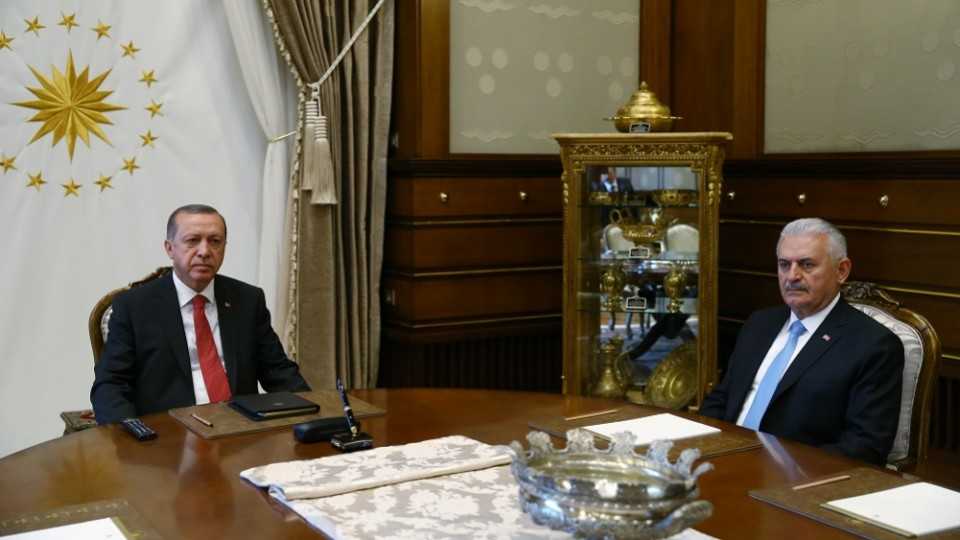
Turkey’s Prime Minister Binali Yildirim on Wednesday announced a cabinet reshuffle that sees the appointment of six new ministers and 11 others changing their positions.
Four of the country’s deputy prime ministers lost their posts, with two being appointed to ministerial positions while the other two are no longer members of the cabinet.
The only deputy prime minister to keep his post was Mehmet Simsek, who is responsible for the economy.
The newcomers to the cabinet are the General Secretary of the governing AK Party Abdulhamit Gul, who has been appointed justice minister; Julide Sarieroglu, the second female minister in the new cabinet, who has been assigned to minister of labour and social Security; Osman Askin Bak, as the minister of youth and sports; Ahmet Esref Fakibaba, a well-known MP from southeast Turkey as the new minister of food, agriculture and livestock; Ahmet Demircan who is now the minister of health; and Hakan Cavusoglu as one of the new deputies of prime minister.
Fikri Isik, who served as defence minister since May 2016 was promoted to deputy prime minister along with justice minister Bekir Bozdag, Recep Akdag, former minister of health and Hakan Cavusoglu, another new name in the cabinet. Bozdag is seen as being especially close to President Recep Tayyip Erdogan and earned his trust during the abortive coup last July.
Former Deputy Prime Minister Nurettin Canikli has been appointed defence minister while another former deputy prime minister, Numan Kurtulmus, who was also government spokesman, has been appointed culture and tourism minister.
Turgrul Turkes and Veysi Kaynak are the two deputy prime ministers who no longer have positions within the cabinet.
The four ministers that lost their positions are Mehmet Muezzinoglu, who was minister for health, along with Faruk Celik, Nabi Avci and Akif Cagatay Kilic, ministers for labour and social policies, culture and tourism, and youth and sports.
The decision for the cabinet reshuffle comes after Erdogan was re-appointed AK Party chairman following the referendum on April 16, which allows the country’s president to be a member of a political party. Prior to the referendum, Turkey’s president was not allowed officially to be a political party member.
Getting the crucial “yes” vote in the referendum means that Turkey’s governing style will be change from a parliamentary system to a presidential system.










Discussion about this post